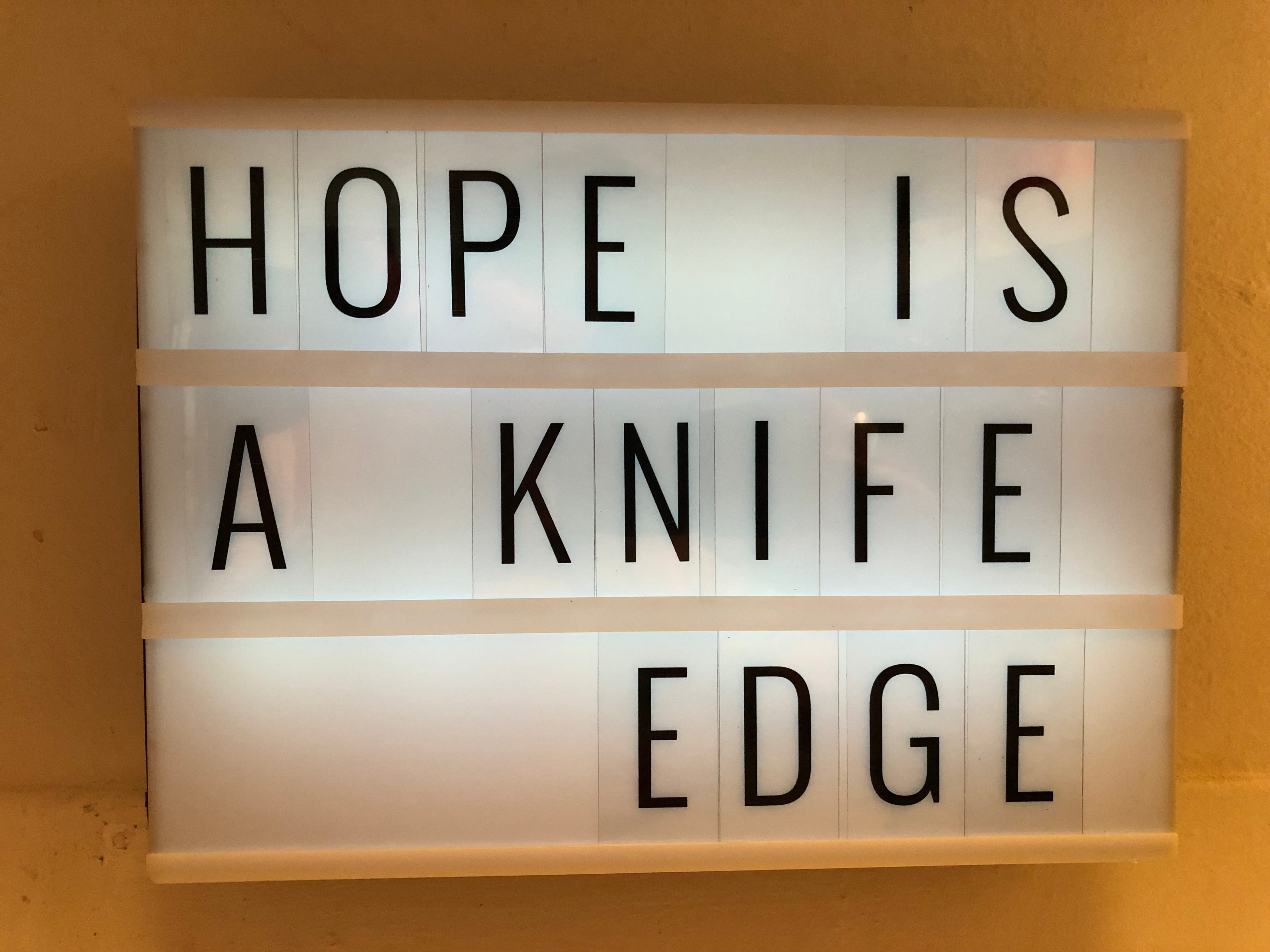It’s Inauguration Day in the USA. A day many the world over have longed for and hoped for, ever since that infamous November of 2016.
Some days, many days (most days?), hope has been hard to come by. The barrage of bad news was difficult to fathom. The Muslim ban. DREAMer slander. Immigrant phobia. Families ripped apart. Children imprisoned in cages. Wild places pillaged. Sacred indigenous grounds, desecrated. Black lives obliterated, again and again and again.
We’ve watched the sky turn orange and homes, lives, forests, burn to ash. We’ve learned that there are such things as “fire tornadoes.” We’ve taken our rage and pain to the streets to wave our cardboard signs and demand that our voices be heard, while our erstwhile leaders drowned us out with tear gas and water cannons and called us un-American.
Thousands of us have died. They’ve stacked our bodies, our beloved, in refrigerated trucks because the morgues had no more room. And Trump and co. just shrugged. Those lives—400,000+ real people—mattered not one whit to them. Ensconced in seats of power, insulated by wealth (or at least the illusion of it), they imagined themselves untouchable. And as we all have seen, over and over again these last years, the only person Trump actually gives a shit about is himself.
In the midst of the never-ending barrage of awfulness, hope has quite often felt impossible. But also incredibly necessary.
It’s a knife edge—that’s what I’ve always felt. Hope is a sharp, thin place where you must balance for survival, ever so precisely. In a poem I wrote way back in 2005, I said: “Hope is the wallflower. / the party rages on all sides and / nobody thinks to invite her. / But if she were missing, if she were gone, / the entire world would be papered with posters, / her face blurry in black and white. / …You don’t realize what’s missing ‘til she’s gone. / Hope is the cruelest noun and the gentlest verb. / Her kisses draw blood. / Her blows make you blush. / She is cyanide and salvation. / She is arctic conflagration. / She is a knife edge.”
Or, as Rebecca Solnit wrote in Hope in the Dark, “Hope is not a lottery ticket you can sit on the sofa and clutch, feeling lucky. It is an axe you break down doors with in an emergency. Hope should shove you out the door, because it will take everything you have to steer the future away from endless war, from the annihilation of the earth's treasures and the grinding down of the poor and marginal... To hope is to give yourself to the future - and that commitment to the future is what makes the present inhabitable.”
Stepping up, taking action, holding aloft that axe of hope has felt so futile sometimes. It’s felt either incredibly naive or very punk rock. Or, as Chuck Wendig put it last August:
But today, we finally get some oxygen. Today, the sputtering flame of our collective hope flares brighter. As President Biden himself said in his inaugural address, “Together, we shall write an American story of hope.”
Everything is not suddenly and immediately ok, of course. White supremacy is still woven throughout our systems and society. The sky is still on fire, albeit metaphorically for now. The pandemic rages on. There is still SO much work to be done. So much damage to be undone.
But today brought me renewed determination to continue writing that American story — for myself, for my daughter, for you.
I was already full of feels this morning. I wept as Madame (!!!!) Vice President Kamala Harris took her oath of office. And then, when 22-year-old poet Amanda Gorman ascended to the podium and recited her poem The Hill We Climb, I latched on to her words like a lifeline.
No one could capture this moment, this truth, better than she did today. (And though I was feverishly taking notes, I couldn’t capture all of Amanda’s brilliant poem. Do yourself a favor and watch her read it.) It’s a balm for the soul. It’s a deep breath of fresh air. It’s hope, personified:
“Even as we hurt, we hoped. / Being American is more than a pride we inherit. It’s the past we step into and how we repair it. / This is the era of just redemption… we did not feel prepared to be the heirs of such a terrifying hour, but within it we found the power to author a new chapter, to offer hope and laughter to ourselves. So while once we asked, ‘How could we possibly prevail over catastrophe?’ now we assert: ‘How could catastrophe possibly prevail over us?’ / There is always light, if only we’re brave enough to see it. If only we’re brave enough to be it.”
Copyright © 2021 LaDonna Witmer






